
Welcome to our CIWA Bulletin Edition 11!
The latest months has been filled with exciting events and initiatives:
The Nile Day celebrated on February 22, 2024, marks a historic moment with the 25th anniversary of the Nile Basin Initiative celebrated in Burundi. Countries of the Nile Basin came together reaffirming their dedication to cooperation over their shared treasure, the Nile River.
We kicked off the month of March with a successful World Café session at the Women in Water Diplomacy Network, where we engaged in meaningful discussions about the role of men in engaging other men to address obstacles to women’s participation and decision making in water diplomacy. In celebration of International Women’s Day, we launched a powerful social media campaign, along with our latest blog, highlighting the incredible contributions of women in the water sector.
And last but not least, we celebrated World Water Day by releasing our FCV (Fragility, Conflict, and Violence) framework, which will guide our work in water-stressed and conflict-affected areas.
We hope you enjoy reading about these events and more in this edition of our bulletin. Thank you for your continued support and stay tuned for more updates from CIWA!
Anders Jägerskog and Ai-Ju Huang CIWA Program ManagersMALE CHAMPIONS OF THE NETWORK: A WORLD CAFÉ ON THE CIWA INITIATIVE
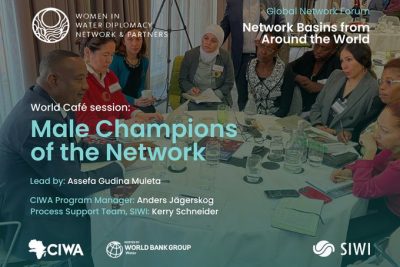
In Vienna from March 3-5, the Women in Water Diplomacy Network Forum was held. One of the highlights was the presentation by CIWA Program Manager Anders Jagerskog and Assefa Gudina from ENTRO on the CIWA Male Champions Forum. This session, held as a world café, generated a lot of interest from the attendees. The Male Champions Forum aims to challenge the cultural norms that limit women’s participation in water resource management by encouraging men to create more gender-equitable spaces.
What’s making a splash
Digging deep: Groundwater in the Horn of Africa’s fragile borderlands
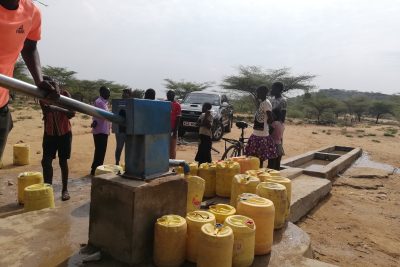
In the conflict-prone borderlands of Horn of Africa, the Groundwater for Resilience Project is an ambitious operation to increase information on aquifers and to enhance drought resilience of vulnerable populations.
A glass half-full: An equal share for women in decisions
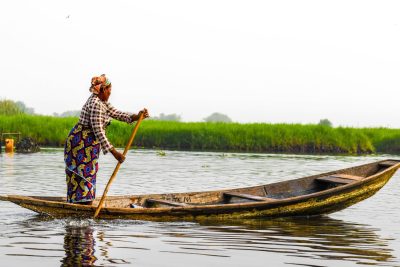
Since 2020, CIWA has accelerated its own efforts to foster gender equality within the transboundary water context in sub-Saharan Africa. Discover how the program emerged as a pioneering leader.
Access to water for women-led farming is a win for communities

Abibata worked on a CIWA project in 2021 to uncover the challenges of access to groundwater for irrigation by farmers in the Sahel, focusing on the constraints that women in Burkina Faso.
Matlhogonolo Mmese: An aspiring hydrogeologist in Botswana
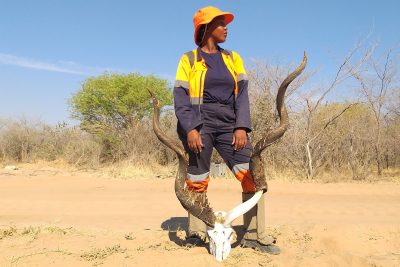
Thanks to work on transboundary aquifers, like the study led by Matlhogonolo Mmese, a better understanding of regional groundwater is possible.
Male Champion Forum: Who has the power to make decisions?
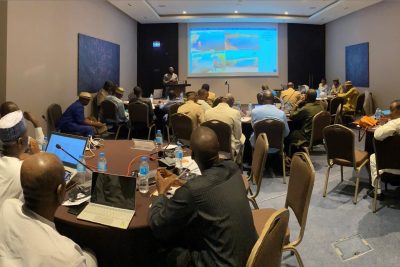
CIWA has designed a pilot program to foster a cadre of men to spur changes in social norms and values on gender in transboundary water management and development.
The CIWA Annual Report 2023 is now available in French!
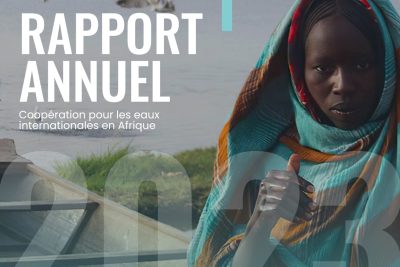
The CIWA Program is dedicated to leveraging Africa’s water resources, huge opportunity to harness for economic growth, as evidenced in its Annual Report for 2023. Now in French.
What's new in transboundary waters and beyond
Leadership of NBI honored at the second "Women in Water Diplomacy Global Network Forum" in Vienna
The forum was an opportunity to reward its Executive Director, Dr. Florence Adongo, for her leadership in the management of transboundary basin organizations. She received recognition for her commitment to building peace and stability in the Nile region.
Reflections on transboundary water conflict and cooperation trends
This article explores major findings and evolutions in understandings of transboundary water conflict and cooperation over the last three decades, focusing on the trends emerging from the Transboundary Freshwater Diplomacy Database.
A Hydro-Economic and Climate Change Analysis for Rwanda
2030 Water Resources Group has been supporting the Government of Rwanda through a number of technical advisory activities, such as the Hydro-Economic and Climate Change Analysis. This paves the way for a scaled-up program for greater impact on water security.
Pollution – a Threat To Our Groundwater Resources
Groundwater pollution significantly affects the prevalence of waterborne diseases. This form of pollution occurs when hazardous substances, such as pathogens, chemicals, and heavy metals, seep into underground aquifers, the primary source of drinking water for approximately 70% of the 250 million people living in the SADC region.
Bringing forth water to combat food insecurity and climate change in the Sahel
64% of the population of the Sahel lives in rural areas and depends primarily on rainfed farming for their livelihood. For small farmers, access to water for irrigation is key to sustaining their livelihood and ensuring prosperity and peace in their communities.
Lessons on Transboundary Water Cooperation
World Water Week 2024 will focus on transboundary water cooperation. The 2023 conference has already highlighted factors that can hinder or enable success. Here are some key lessons from SIWI corner at World Water Week that will get you up to speed with next year’s theme.
Spotlight: The Nile Basin Initiative celebrated its 25th anniversary
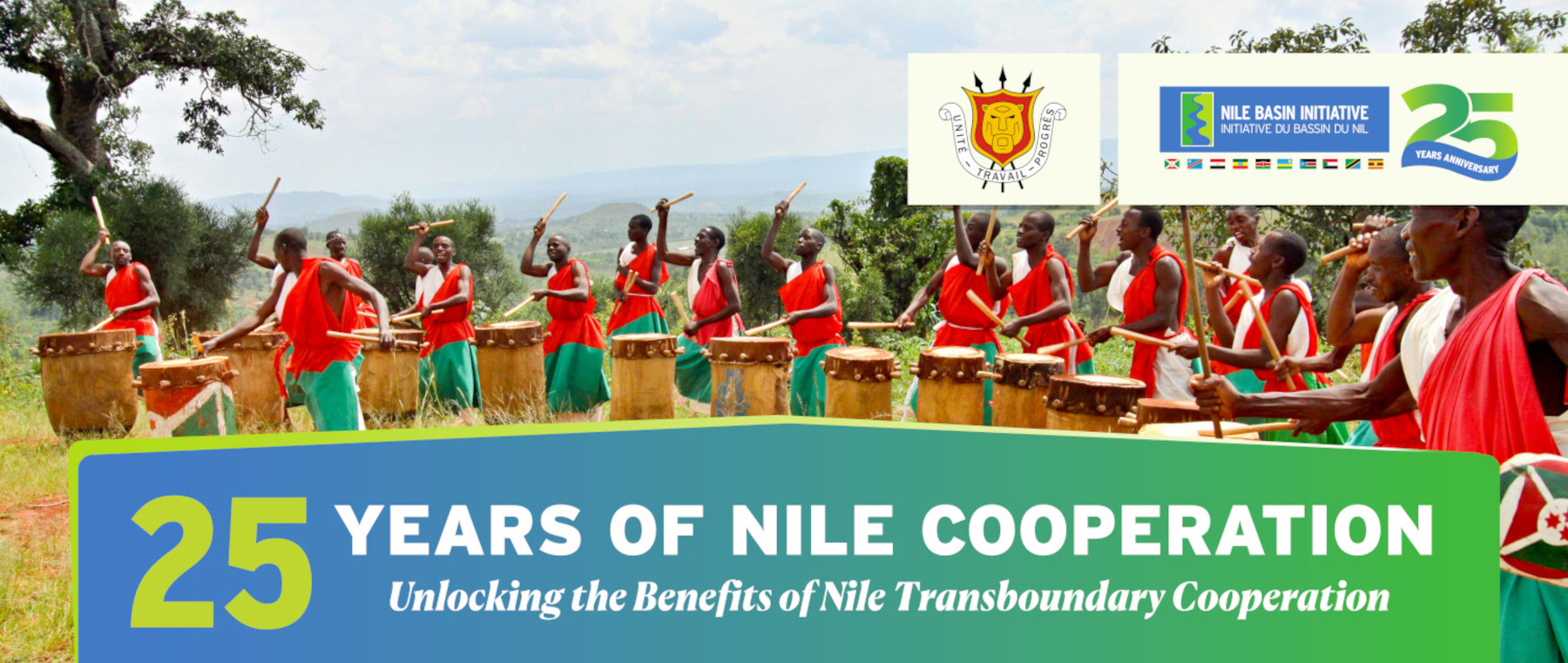
Nile Day is an important event for the Nile Basin Initiative, shining a spotlight on the crucial role of cooperation in sustainable management and development of shared water resources.
Save the date for these upcoming events
6th SADC Groundwater Conference
We are happy to announce that our partner SADC-GMI (the Southern African Development Community’ s Groundwater Management Institute) will be hosting the 6th SADC Groundwater Conference on November 13-15, 2024 in Maseru, Lesotho. The conference theme is “Promoting Peace Across Borders through Conjunctive Water Management.” Stay tuned!
Stockholm, Sweden | World Water Week 2024: 25-29 August
World Water Week 2024 is centered on water cooperation, for peace and security in its broadest sense. The theme, Bridging Borders: Water for a Peaceful and Sustainable Future, underscores the collaborative effort needed to achieve a peaceful and sustainable future.CIWA’s social media engagement
With a history of dispute over Nile resources , @ciwaprogram & @entronbi internship facilitate collaboration & perspective-sharing for transboundary💧discourse & capacity-building 🇪🇬 🇪🇹 🇸🇸 🇸🇩
— World Bank Water (@WorldBankWater) March 17, 2024
More about this initiative: https://t.co/kTnoBGkCPs#WorldWaterDay #WaterForPeace pic.twitter.com/By5mhPzMXe
#NileDay is here! 🌍🌊
— Cooperation in International Waters in Africa (@ciwaprogram) February 22, 2024
For over 12 years, @NBIweb & @CIWAprogram has fostered #transboundary cooperation in the Nile Basin on which over 200 million people rely for their livelihoods 💧
Join us in #CelebratingNileCooperation for peace, sustainability & resilience ♻️#NBI@25 pic.twitter.com/3Cvi3lu3tq
As #InternationalWomensDay2024 approaches, @ciwaprogram emphasizes the importance of investing in women and #GenderEquality for better #transboundary water management across #Africa 🌍💧
— Cooperation in International Waters in Africa (@ciwaprogram) March 4, 2024
Learn about our work in our NEW blog : https://t.co/5wEnTUc2gE pic.twitter.com/30VQUbuXKN
Great blog on bridging gaps in #groundwater knowledge. +70% of the Southern Africa Development Community relies on groundwater. @CIWAprogram supports the @sadc_gmi project, scaling up transboundary activities for inclusive groundwater management.
— Axel van Trotsenburg (@AxelVT_WB) February 6, 2024
More: https://t.co/kMeX0hTzfF pic.twitter.com/cMzD1TGDDp


